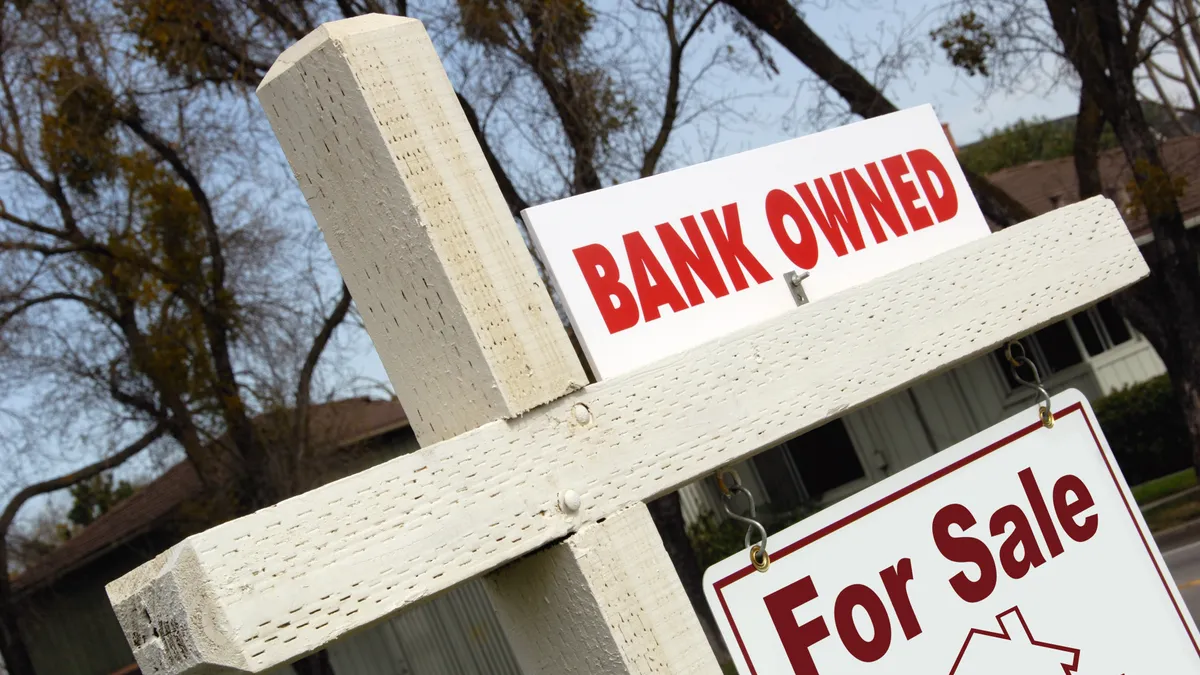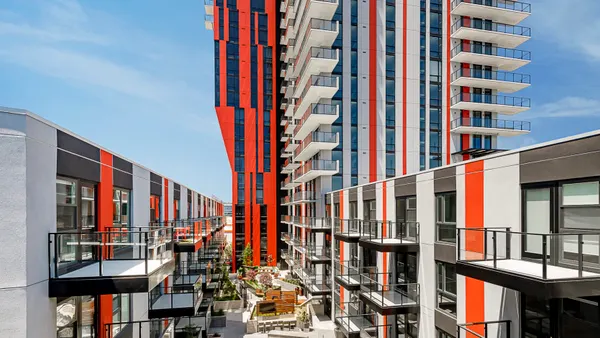Dive Brief:
- Delinquency rates for apartment commercial mortgage-backed securities hit a nine-year high in August, according to a report from data firm Trepp.
- CMBS delinquency rates for apartments jumped 71 basis points month over month in August to 6.86%. The multifamily rate was 3.3% a year ago and 4.46% six months ago.
- Servicing rates for apartment CMBS loans rose 24 bps month over month to 8.61% in August, according to a report from Trepp. The multifamily rate was 5.71% a year ago and 8.51% six months ago.
Dive Insight:
The overall commercial real estate Trepp CMBS Special Servicing rate fell 19 basis points to 10.29% in August, marking the second consecutive monthly decrease after peaking at an all-time high in June. The largest reductions were in lodging, where the rate fell 91 bps to 9.10%, and mixed use, where the rate fell 157 bps to 10.64%.
The Trepp CMBS Delinquency Rate increased for the sixth consecutive month in August 2025, rising six bps to 7.29%. Along with multifamily, office rates also surged during the month, jumping 62 bps to an all-time high of 11.66%. The retail delinquency rate fell 48 bps to 6.42%.
While delinquency rates are rising, REIT executives say low-priced deals are yet to emerge..
“In our markets, we're not really seeing distress in the market,” Brad Hill, CEO of Memphis-based MAA, said on the REIT’s second-quarter earnings call in July. “Honestly, we're not seeing that manifest itself in the way of good buying opportunities.”
On UDR’s Q2 earnings call in July, outgoing President and Chief Investment Officer Joe Fisher remarked that lenders are still willing to extend borrowers, specifically developers, on conventional loans.
“We haven't seen the so-called wave of maturities that was expected to create some potential distress, really create any distress at all,” Fisher said.
In fact, Hill remarked that cap rates fell from Q1, meaning that prices are actually increasing for apartments. However, he admits the sample size was small. “There's not a lot of transactions,” Hill said. “I think there were only maybe 10 or 12 that we tracked, which is very low.”
But as more properties become delinquent, buying opportunities could emerge. “We'll continue to certainly keep our eyes on that [distress], but [there is] nothing at the moment in that area,” Hill said.
Click here to sign up to receive multifamily and apartment news like this article in your inbox every weekday.











